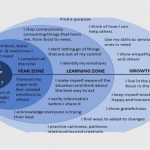Active Listening – Necessary if You Want to Create a Coaching Culture
When trying to create a coaching culture in organizations, a large focus is to help managers learn coaching skills. One such skill, which sounds easier than it is, is active listening.
Many clients and managers I have worked with, both as a coach and an HR executive, believe they are “effective listeners”, but when we explore the reality, often different realities are discovered.
And, during this time of staying at home due to the Covid-19 pandemic, active listening might be even more challenging using technology such as Zoom, speaking on the phone rather than face to face, or having disruptions from children, pets, and significant others while working from home.
In order to actively listen, it’s critical to be fully present. This entails blocking out the external noise, and focusing on what is here now. It’s paying attention not only to the words of the person speaking, but also to their body language* and facial expressions* without judgement, simply as parts of what they are communicating. It means not thinking about what you’re going to say next, but truly listening to their words and their message.
To model active listening,
- Be fully present to put your full attention on what the speaker is trying to communicate.(Think of mindfulness – this is a very important skill to build)
- Provide a judgement free safe space. Be open to the various perspectives, ideas and possibilities being shared.
- Reflect and/or paraphrase what you have heard, so the speaker can confirm if you heard their message as they intended it to be.
- Ask clarifying questions to be sure the speaker can deliver to you the message they want you to receive and/or so you can gain even more information about the topic being discussed. (Be curious – ask open ended questions to learn more.)
- Acknowledge and summarize what you have heard.
- Don’t interrupt; hold off on sharing your opinion. (Be comfortable with silence – this can allow for deeper, more thoughtful communication)
Why is this skill important in the workplace? Active listening helps to build and deepen relationships and build trust. It can increase productivity and efficiency by avoiding a lot of miscommunication and by engaging your employees leading to increased employee retention. Your employees will feel more empowered if they are able to share their ideas and perspectives in a judgement free space. The listener can better understand problems that need to be addressed and can increase their own self-confidence by being open to the perspectives of others.
I hope you will find these tips and messages helpful for when you are engaging with your direct reports and colleagues when you’re back in the office. And, I’m hoping you can start practicing now, when it may be even more challenging working from home with different distractions. Creating new habits requires intentionality and practice. Now is as good a time as ever to start doing, or improving this skill.
What do you find most challenging about active listening? If you or your organization would like to work on developing coaching skills for you or your managers, please reach out. I look forward to connecting.
“Listen with the intent to understand, not the intent to reply.” – Stephen Covey
*If you can’t be face to face for a conversation, active listening is still possible. Listen deeply, listen for the essence and listen to the tone, and continue to reframe and reflect, and be curious with clarifying questions.






